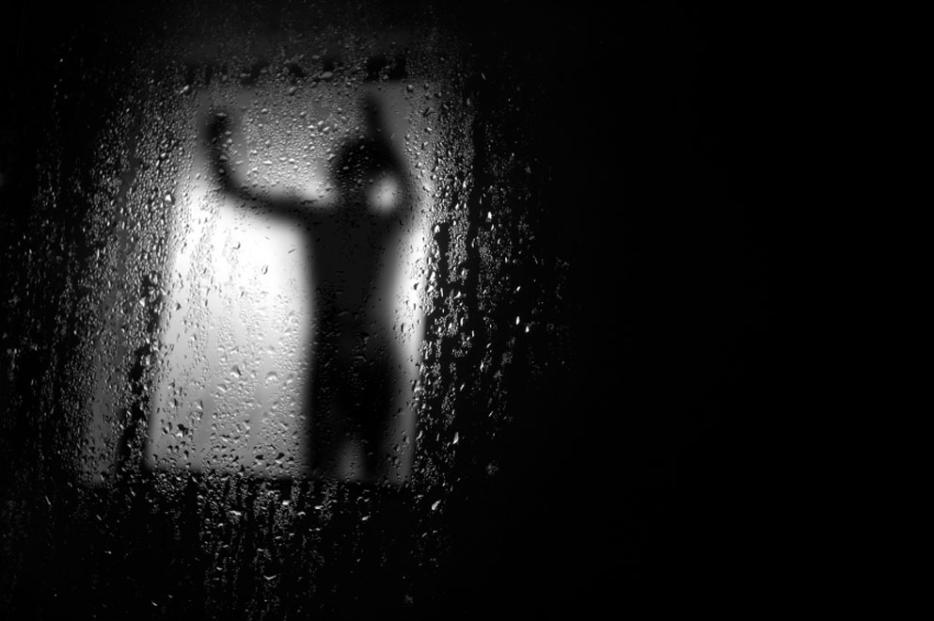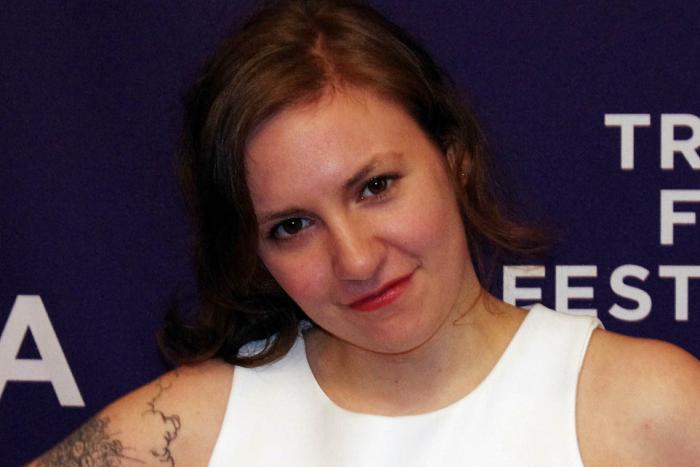Quick poll: How many of you have been photographed naked? Atop a cozy duvet? In fetish gear? In close-up? Have your genitals been rendered as weird and clammy as a deep-sea jellyfish? Have you been captured for posterity from angles objectively disgusting to anyone not chemically bonded to you?
Were you photographed, filmed, or both? And was the photographer—or filmmaker—a stogie-chomping hustler, a degenerate in aviator glasses, or someone you knew and felt comfortable enough to entrust with naked pictures of yourself?
Do you know what became of those pictures?
I know my answer. It’s likely that yours and mine are similar—very likely if you’re under 30. Have sex in the vicinity of a camera, and there’s a reasonable chance you’ll put it to use; everyone is always in the vicinity of a camera.
The Lori Douglas trial is a saga with many takeaways. One is that even judges (even middle-aged women judges) have sex; one is that you can’t always trust the people closest to you. But the most important is that our private lives—all of ours—are stuck with a thousand leaking holes. And this is cause for alarm, but it need not be.
*
Back in 2003, Lori Douglas was a lawyer at the Winnipeg firm Thompson Dorfman Sweatman, and had twice applied for the bench. She was also a warm-blooded human female, who enjoyed a seemingly healthy sexual relationship with her husband and colleague, Jack King, one that involved bondage, urination, and other acts that can seem both freaky on paper and natural when they come up with a partner. King photographed these activities for their private benefit, until—apparently in the throes of a depressive episode—he began posting the pictures to Dark Cavern, a site featuring “INTERRACIAL SEX at it’s most hardcore!” [sic]. That May, he sent them to a client, Alex Chapman, who is black, as part of a proposition. Chapman appears to have indulged him at first, then lawyered up and complained to the firm. Around this time, King finally broke the news to his wife.
“Met Jack for lunch,” Douglas wrote in a diary entry dated June 16, 2003. “My world collapsed with what he had to tell me.”
The matter was settled out of court. For $25,000, Chapman agreed to get rid of all photos of Douglas and refrain from pressing charges or speaking about the incident. King resigned and took a year off on medical leave; Douglas applied once again for a judicial post. According to the justice who chaired her screening committee, Douglas was open about both Chapman’s harassment claim and the nude photos. The committee ultimately determined the issue resolved, and Douglas answered “no” on her form application to the question of whether anything in her past could “reflect negatively” on herself or her future post, and should be disclosed.
In January 2005, Douglas became a judge. In 2010, Chapman reneged, alleging that Douglas had participated in his harassment and filing $67 million in lawsuits against King, Douglas, and TDS. King pleaded guilty to professional misconduct to the Law Society of Manitoba; he was reprimanded and fined, but he can still practice law. Douglas, however, is now the subject of a public inquiry by the Canadian Judicial Council.
There are four allegations at issue: 1) that Douglas sexually harassed Alex Chapman, the only evidence of which comes from Chapman himself (Douglas and King, who are still married, both deny it); 2) that she failed to disclose the whole business to the screening committee (which appears to be untrue, notwithstanding the “no” on her application form); 3) that she altered evidence—a diary entry—and misled investigators about it (she admits this, but says the change was made for reasons unrelated, and that she spoke misleadingly under stress) 4) that the photos themselves “have undermined confidence in the justice system and her ability to act as a judge.” This last allegation is what we’ve been arguing about. It’s disputed territory between reason and passion.
“I reject Douglas’ claim she is a victim; she is not,” wrote Georgialee Lang, a Vancouver lawyer, in the Toronto Star. “She has the education and sophistication of a worldly woman who knew when she applied for a judicial position that she would be held to a higher standard of conduct than the pole dancers at Winnipeg’s popular Teaser’s Burlesque Cabaret.”
The notion that posing salaciously for a loved one (or dancing burlesque) is low conduct is poor soil for a maypole. “She knew or ought to have known,” Lang continues, “that where her personal life intruded on her judicial duties, any complaint about her situation could and would be investigated by her governing body that has a statutory duty to investigate all complaints.” Yes; where her personal life intruded on her judicial duties. And Lang begs the question of whether or not it did.
Barbara Kay addresses this question in her own way: “A woman who wants to be photographed in transgressive sexual mode is giving tacit permission for her transgression to be shared with others,” she wrote in the National Post, without elaborating further on a fairly heavy supposition. “Common sense and a common standard of decency are the pillars of a civilized society. Both demand that King and Douglas be stripped of their professional accreditation.” (Confirming, if nothing else, that Kay’s standards are quite different from those of commoners.)
It’s difficult to argue that Douglas’s actions have disqualified her from doing her job, because they haven’t. Her actions—as far as we know—were allowing her husband, whom she had reasonable grounds to trust, to photograph her in (shall we say) “romantic states.” Her husband behaved terribly, but, as far as we know, she didn’t; and in our post-medieval society, we do not blame a woman for the infractions of her spouse. To me, editorials like these feel less like arguments than expressions of distaste, the consequence of an uncomfortable association between two seemingly incompatible concepts: the sexual being and the sober judge, the professional (woman) and the object of desire. The umbrage seems to stem not from moral judgment, but from cognitive dissonance.
I’m not the first person to say as much (Christie Blatchford has made some powerful arguments over the course of many columns in the Post). But it needs to be said again, because such dissonance cannot abide in an age where our personal lives are as vulnerable as egg yolk. What happened to Douglas could happen to any of us.
“A 2008 U.S. survey found that one in five teens had electronically shared nude or semi-nude images of themselves and that almost 50 per cent of teens had participated in “sexting,” the electronic sharing of sexualized images and texts,” wrote Karen Busby in the Globe. If Douglas is removed, she continued, “many leaders of tomorrow will live in fear that they could face the same fate.”
Which means we all have to get used to the private lives of public people.
*
In 2007, the political columnist Katha Pollitt published a book of personal essays, Learning to Drive, with subjects ranging from the ugly to the mundane—web-stalking her terrible ex-boyfriend, her inability to drive—and was lambasted by critics who thought her frankness unbefitting a serious writer and feminist. “People have public lives and private lives,” wrote Rebecca Traister, in a Salon essay addressing the criticism, “And when the ‘twain meet, it makes you turn red.” When people violate the roles we assign them—when they render themselves uncanny—we feel it in our guts; Traister offers, for example, the time she caught her public school teacher moonlighting as a grocery store clerk. I felt the same way at 11, when a drunk relative told me that, in terms of “physical dexterity,” “anything [I] could do, [he] could do better.”
“One of the themes in this book is not knowing people that you think you know,” Pollitt told Terry Gross. “For example, my mother was a secret drinker, and I didn’t realize that when I was growing up. So I think I do have a sense that people are very mysterious, including myself.” We can’t expect the world, much less the people in it, to limbo below our parameters—but, of course, we do, and we’re usually shocked when they leap to their feet and begin trepaking in circles around us. Sometimes the shock is well founded, a reaction to some hidden nastiness—as in Pollitt recognizing the extent of her ex’s philandering—but sometimes the shock is a run-in with the limits of our perception, and sometimes those limits need adjusting. As Traister writes, Pollitt’s romantic foibles don’t affect the integrity of her political writings, or the quality of her prose. I’d argue that they do the opposite: I find it easier to trust writers who don’t affect godlike omniscience.
Traister points out that we tend to judge women more harshly than men when their private lives leak through their public veneers, and wonders whether ageism and lookism encouraged the Pollitt backlash; commentators have wondered the same about Douglas. The issue goes beyond gender—it has to do with how closely we delineate public roles, how strictly we hold the world to our mock-ups thereof—but gender is nonetheless a good case study, because female roles are much more limited than men’s. We’re already comfortable with the idea that a man can be a rogue, a womanizer, a hedonist, and still a statesman or thinker or distinguished person of letters. I watched Clinton’s DNC speech without once picturing his penis in the mouth of a twenty-something, or Molly Shannon prostrating before Darrell Hammond. The notion that a woman, much less a woman past her 30s, can be sexual in the first place is still novel; sexual plus is a mindblower.
For reasons of equality—but, moreover, for reasons of empathy—it behooves us to be mature about this distinction between public and private self. This comes easier to Millennials, I think, because growing up online (not to mention socializing online) forces an intimacy between the two. I’m more candid about my personal life than most of my older friends are, but not less concerned with my professional reputation. What I do for fun or eat for dinner says nothing about my ability to produce a good story, file it on deadline, or work respectfully with an editor. In fact, being a jerk on Twitter seems much worse, to me, than swearing or referring to my crotch (provided it’s a funny reference)—the state of my sex life matters only insofar as I can write well about it. For me, standards of decency have little to do with how one lives and everything to do with how one treat others.
I can understand why my older friends feel mortified by the idea of self-exposure, or feel terrified by the threat of being exposed. (My parents are another story, one I’ve been instructed not to write until they’re dead.) It makes sense by the standards they grew up with—which are not mine, and not, I don’t think, those of future generations. Social life now entails a degree of exposure; for many of us, so does professional life. Which makes items like this National Post editorial come across as either naïve or inhumanly stringent:
“Just like the drunken college grad, whose friends post a lewd picture of him on Facebook and then loses a job opportunity when his potential employer sees it, Judge Douglas got caught in a mess of her own making. Compromising images, even when within one’s control, or the control of a loved one or friend, always have the possibility of leaking. And when they do, there is no one to blame but oneself, for allowing them to be taken in the first place.”
The only way to prevent oneself from being photographed while drunk is to not drink, because most bar patrons are packing cameras. (Learning your Facebook privacy settings can help, but not absolutely.) And if this is the case, if we can’t fortify our leisure, we will have to become more forgiving.
This will require adjusting our concept of professionalism. We project saint-like constancy onto our public figures, our judges and commentators and politicians: we don’t always respect them, but we equate them with their jobs. The very definition of professionalism, however, is the ability to do your job in spite of your humanity. A professional house painter paints your house consistently regardless of whether or not he’s a good dad. A professional surgeon fixes your innards regardless of whether or not he likes your face. Yes, we hold judges to a higher standard of conduct, because their business is conduct. But recall: Douglas—as far as we know—didn’t do anything wrong.
*
In 2010, Alice Woolley, associate law professor at the University of Calgary’s faculty of law, made a sounder argument in favour of Douglas’s removal, wisely avoiding the moral character of those photographs, and addressing, instead, the racial issues involved: “This is not about Douglas. It is not even about whether she would be a good judge. It is about whether people appearing before her could feel confident that their cases were being heard fairly and dispassionately. If those people included a black man, or a white woman divorcing a black man, or a Mexican family dealing with a child apprehension case, those people could reasonably wonder whether the racial stereotyping that the website reflects is one that Douglas shares, and that will impact her judgment.”
John Baglow, however, nailed a respectful rebuttal: “in conversation, my co-blogger Marie-Ève raised an equally salient point… Should a proposed judge who has been active in the Catholic Church be rejected because he could not be neutral in the case of a gay defendant, or one in which abortion was a factor? Should a Jewish candidate be turned down because of an apprehension of bias if an accused Muslim terrorist were in her courtroom? Judges are human beings, no more neutral in life than anyone else. In fact I’d be hard-put to define what “neutral” actually means, since one person’s “neutral” is always another person’s parti pris. What we do expect is that, in their role on the bench, judges will recognize their own prejudices and preconceptions and consciously put them aside, considering only the evidence.”
In Canada, parliament is responsible for approving and removing judges; the CJC makes recommendations both ways, although it has only ever recommended two removals: Paul Cosgrove and Jean Bienvenue. Cosgrove mishandled a murder case, displaying a significant bias in favour of the defence. Bienvenue expressed blatant gender bias in his sentencing of a female murder defendant (“When women—whom I have always considered the noblest beings in creation … ascend the scales of virtue, they reach higher than men, and I have always believed this. But it is also said, and this too I believe, that when they decide to degrade themselves, they sink to depths to which even the vilest man could not sink.”) He then made a bizarre reference to Auschwitz. Bienvenue’s beliefs, however, were not on trial, and neither were Cosgrove’s; their professional conduct was. Both of them failed to do their jobs properly.
That difference—between acknowledging a bias and conducting oneself appropriately regardless, between an emotional response and a reasonable argument—is exactly what’s at issue here. We can read this tension into Lang and Kay’s critiques, both of which seem spun from the gut, both of which refer to standards of decency and then fail to define them, or explain why they’re decent in the first place. I empathize with Lang and Kay, to the extent that those photographs of Douglas made me uncomfortable, too. But my discomfort is no foundation for moral judgments, no grounds for condemnation.
Discomfort is a matter of taste, which columnists are of course entitled to. Barbara Kay’s job is to have an opinion; she’s free to source arguments from her biases. Douglas’s job is to not do that.
The Internet tends to perforate the boundaries between our public and private lives. Which means we’re often confronted with the weird ways of others. Which means that others may learn about our weird ways. Our lifestyles are not always going to jibe, and it’s futile to attempt not to judge, ridiculous to expect not to be judged ourselves. But taste is personal; judicial appointments are not. We are faced with a future in which we may well know what our public figures do in the bedroom. That doesn’t mean it matters.





